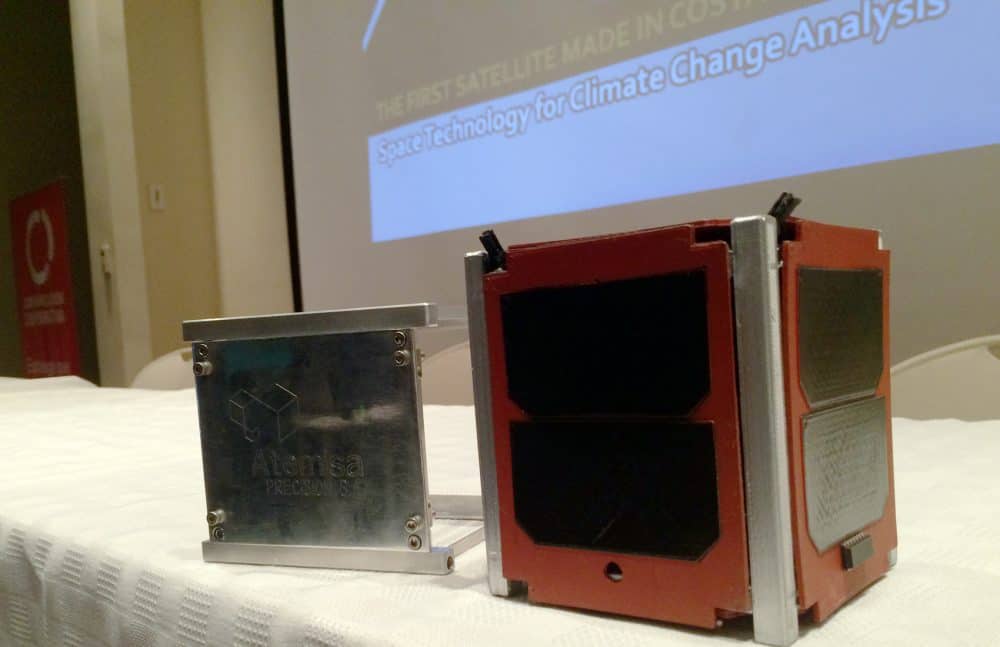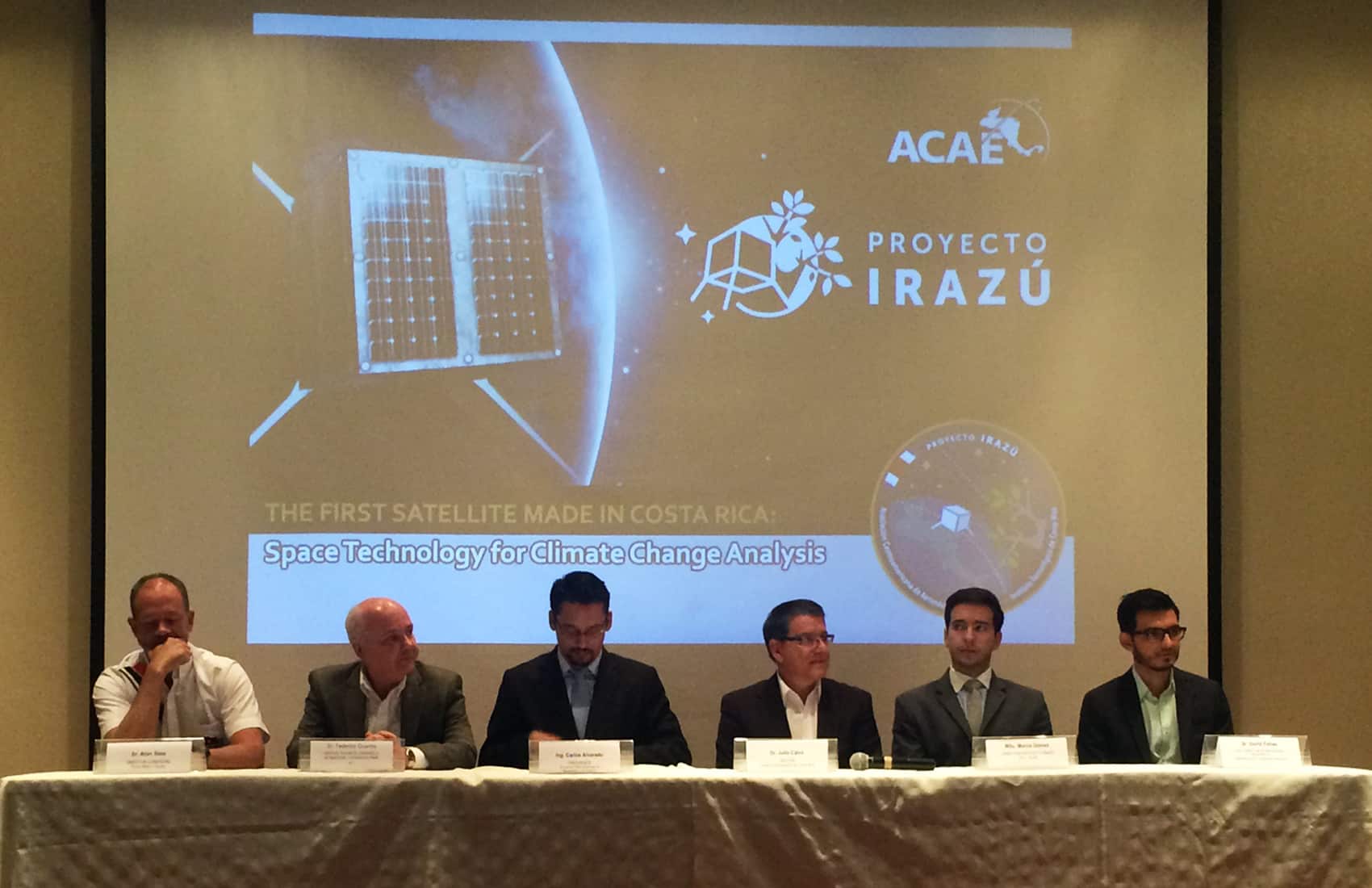Officials at the Costa Rica-based Central American Association for Aeronautics and Space (ACAE) on Monday announced they will launch a crowdfunding campaign to raise $75,000 needed to orbit the first Costa Rica satellite, a small device called picosatellite.
The 10-centimeter (4-inch) picosatellite is a key element of ACAE’s Irazú Project and is expected to be deployed into space from the International Space Station (ISS) during the second half of 2017. The project takes its name from Costa Rica’s highest volcano, located in Cartago province.
Project director Marco Gómez said the research consists of real-time measurements of temperature, humidity and carbon dioxide fixation. Data will be collected in a forest in Los Chiles, a mountainous area near Costa Rica’s border with Nicaragua, and will be used to evaluate climate change effects on forests.
In another area of the project, researchers from the Technology Institute of Costa Rica (TEC) will attach devices known as dendrometers to trees in order to measure the effects of climate variations on their growth.
The picosatellite will collect all data and will broadcast it in real time to databases at labs at TEC’s campus, where the third part of the project, data analysis, will take place.
TEC’s Rector Julio Calvo said that professors and students from the university will be responsible for processing, analyzing and preparing visualizations with daily data obtained at the forest.
Data will be used by researchers from various TEC faculties in projects ranging from climate effects to numerical weather prediction. Information collected also will be shared on a website as open data so it can be used by investigators and students all over the world.
Calvo noted that the daily collection of data will represent a breakthrough for Costa Rica as countries currently involved in CO2 research “only conduct periodic measurements, usually every year,” he said.

The picosatellite
The picosatellite weights about 1 kilogram and was fully designed by Costa Rican researchers under CubeSat, or microsatellite, standards.
It will be deployed into space from the Kibo Lab, the Japanese module at the International Space Station, with the support of the Kyushu Institute of Technology. Once in space, it will orbit Earth at about 400 kilometers height.
ACAE President Carlos Alvarado Briceño said the tiny satellite will remain in space for six months, and all data collected will be analyzed in order to establish the possible relation between the amount of CO2 from climate change and tree growth.
“Irazú Project also represents an opportunity for Tico small and medium-sized enterprises because many of the satellite’s components are being manufactured here,” Alvarado said.
He said its metal structure was designed and manufactured by Atemisa Precision, a local company currently working in the manufacture of medical devices.
Crowdfunding campaign
The project’s total cost is of $500,000. But after six years of negotiations and research, ACAE and TEC currently need $75,000 to finance the final stages of construction, testing and deployment into space of the picosatellite.
ACAE will launch a one-month crowdfunding campaign starting at 7 a.m., Costa Rica time, on Monday March 21 at the online funding platform Kickstarter.
Donate: Go to the crowdfunding campaign.
People interested in helping fund the Irazú Project will be able to donate amounts ranging from $10 to $5,000. In exchange, they will receive mission perks including certificates of appreciation, mission patches, official posters, T-shirts, satellite models, and the possibility to include their names on the picosatellite project.
All people pledging $10,000 or more will have their names up into space on the satellite. They also will visit the lab where it’s been being tested and will receive an invitation to attend a special celebration for the satellite’s launch in 2017.
The same special rewards also will be awarded to the first 5 Ticos or Costa Rica residents to pledge at the kickstarter campaign.
ACAE and TEC researchers expect the crowdfunding campaign will help them raise the funds to complete the manufacturing stage this year in order to begin tests in Japan prior to launching.
Japan’s Kyushu Institute of Technology will be responsible for testing, certifying and launching the picosatellite into space.
Watch a video explainer of the Irazú Project that will be at the Kickstarter crowdfunding campaign from March 21. (Courtesy of ACAE)






